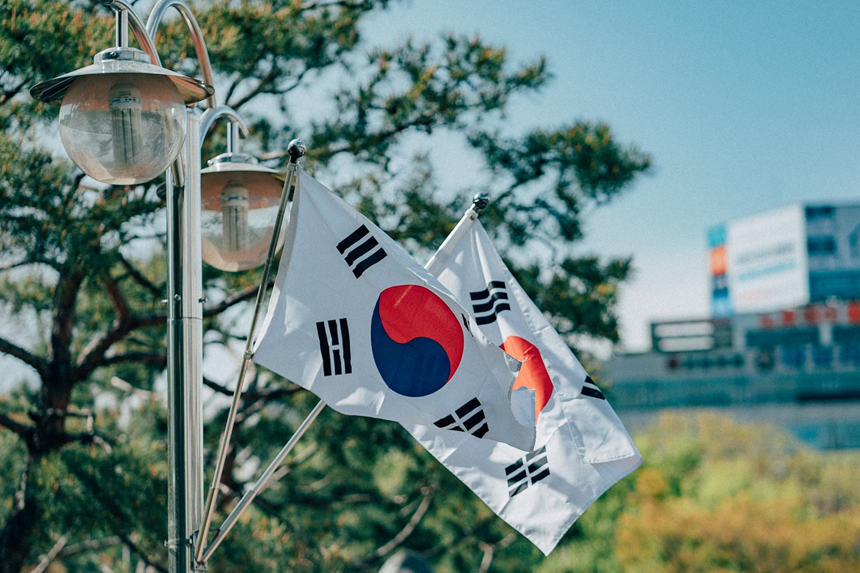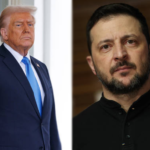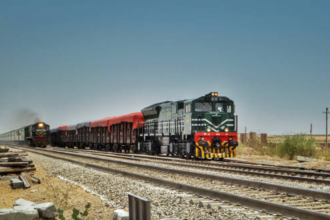Shin Jeong-min, a young pharmacy student, waited impatiently outside South Korea’s Constitutional Court one chilly January afternoon as the suspended president arrived to contest his impeachment. The crisis in South Korea has heightened political conflicts all around. With each side accusing the other of trying to undermine democracy, Yoon’s fans’ and detractors’ widening gulf has gotten to be explosive.
Yoon Suk Yeol testified, while Jeong-min yelled along with hundreds of his enraged and anxious fans, who have gathered around him ever since his abortive effort to establish martial law. Let him go right now. Call off his impeachment,” they cried loudly.
Citing a theory popular among President Yoon’s most fervent supporters—that the left-leaning opposition party wants to unite with the North and transform South Korea into a communist nation—Jeong-min said, “if the president is impeachment and the opposition leader is elected, our country will become one with North Korea and Kim Jong Un.” Far-right news sources and social media have extensively disseminated this story, which fuels mistrust and paranoia among Yoon’s followers.
Why Are Younger Koreans Endorsing the Far-Right Movement?
Jeong-min, 22, is different from the legion of elderly Koreans who have always hated and feared the North. Now in their 60s and 70s, that generation saw the Cold War and recalls angrily the terrible aftermath of North Korea’s invasion in the 1950s. These memories have strengthened their firmly anti-communist opinions.
Early December’s martial law declaration by Yoon used these anxieties to support his power grab. He asserted, without referencing data, that “North Korean communist forces” had crept into the opposition party and were seeking to bring about national collapse. They had to be “eradicated,” he remarked, rushing to forbid political activities and assign the army command. Though surprisingly also popular among younger South Koreans, who have grown more patriotic in recent years, his messaging connected with older conservatives.
Two months after his abortive coup, young and old Yoon’s fans are engulfed in anti-communist fury. Even some who had never given North Korea or communism much thought are now persuaded their dynamic democracy is on the verge of being turned into a leftist dictatorship—and that their leader had no choice but to remove people’s democratic rights in order to protect them from both Pyongyang and Beijing. The emergence of nationalist influencers on YouTube has strengthened these concepts even more by including a new generation into the extreme right-wing political fold.
One 40-year office worker who had left his job to attend the demonstration before the court remarked, “This is a war between communism and democracy.”
Another thirty-something man fervently insisted that the president ought to be taken back into office right away. “He is going to seize every North Korean spy,” he declared. Such rhetoric is somewhat typical as political debate in the nation is moving toward hyper-polarization.
In what ways has history shaped these anxieties?
Such threats were once quite genuine. North Korean spies routinely tried to get inside the administration during the 1960s and 1970s.
A group of North Korean commandos slipped across the border in 1968 in an attempt to kill then-President Park Chung-hee. Still bearing gunshot wounds from the fierce gunfights raging for almost two weeks, a tree atop Seoul’s Bugak mountain
A radical far-left student movement started applauding Pyongyang for its “superior” democratic system in the 1980s, amid the last years of South Korea’s harsh military dictatorship. Their classification was regime “sympathizers.”
Authoritarian leaders frequently also accused their political rivals of being North Korean conspirators.
“Anti-communism became the dominating ideology of South Korea’s military dictators, who used it to control society and justify restricting people’s freedom,” said Chungang University sociology professor Shin Jin-wook. This history of created political paranoia continues to have a role in present South Korean politics.
Exists any actual threat from North Korea today?
These risks have mainly disappeared today. More risk comes from Pyongyang’s nuclear weapons and sophisticated cyber-hacking skills; it would be challenging to find someone in South Korea who wants to replicate North Eastern life. The political left and right are only divided over how to cope with their bothersome neighbor.
The left-leaning Democratic Party prefers to interact with Pyongyang, thinking the two nations can coexist peacefully, while Yoon’s conservative People Power Party seeks to threaten the North into submission with military superiority.
Yoon has been charged, meanwhile, with taking advantage of people’s historical anxieties. “Yoon is the first president to use this anti-communist philosophy so blatantly since Korea became a democracy in 1987; his rhetoric almost exactly matches that of past dictators,” Mr. Shin added.
Yoon not only charges the parliament headed by opposition of being rife with Pyongyang sympathizers but also implies that North Korea, assisted by China, manipulated last year’s parliamentary election. Though they have no foundation in fact, his assertions have appeal among his adherents.
Has Yoon's appeal grown despite impeachment?
Yoon’s unfounded assertions have been ingrained as the South Korea issue intensifies, and his support seems to have strengthened. Though most South Koreans still wish he be permanently removed from office, the number has dropped. It was 57% last week, compared to 75% the week following the martial law announcement.
By means of his anti-communist rhetoric, Yoon has also deftly caught the seething mistrust of China. To fear North Korea today means to be afraid of China too.
Many supporters at a recent weekend march in Seoul had traded their iconic “Stop the Steal” election fraud placards with ones proclaiming “Chinese Communist Party OUT.”
“I think China is meddling in every political concern of South Korea. Said 66-year-old Jo Yeon-deok, clutching one of the signs, “it’s pulling the strings behind the scenes.”
Does the democracy of South Korea run danger?
Expert Lee Sang-sin is less forward looking. Yoon’s fans resemble “a fast-growing cult,” he says.
“The crisis in South Korea has produced great divisions,” he remarked. “It will have a long-lasting impact on Korean civilization.”
Although opposition member Wi Sung-lac is sure most South Koreans still cherish democracy, the widening rift in the nation indicates Yoon’s impeachment marks simply the start of a far more extensive political battle. The nation is currently at a crucial junction when political extremism and false information could destroy its democratic basis.







